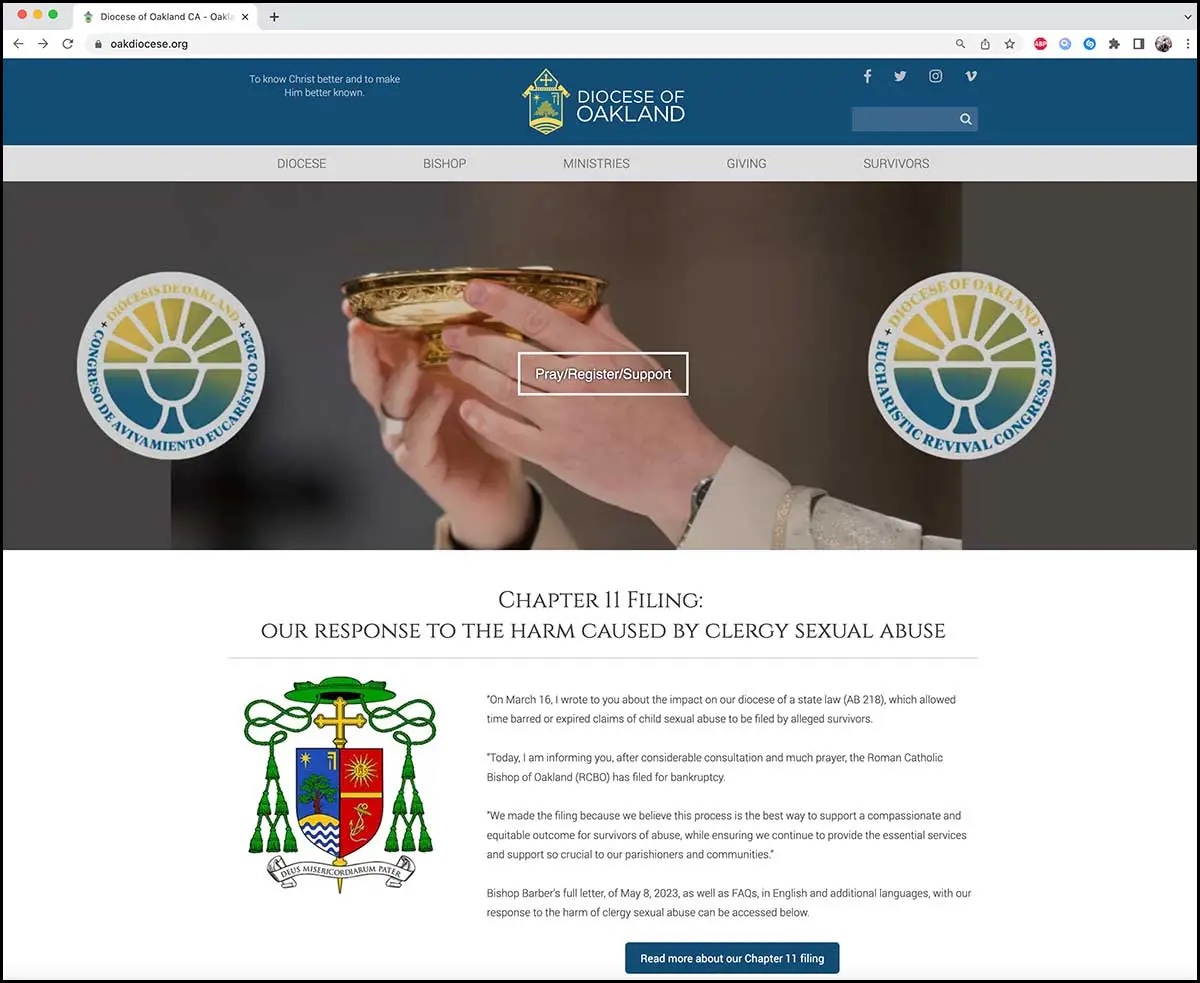The Roman Catholic Bishop of Oakland filed for bankruptcy protection Monday in the face of 330 child sex abuse claims going back decades, church officials announced.
The diocese filed for Chapter 11 bankruptcy in order to stave off individual lawsuits and consolidate the claims in a court-supervised process that will ultimately lead to settlements.
“After careful consideration of the various alternatives for providing just compensation to innocent people who were harmed, we believe this process is the best way to ensure a fair and equitable outcome for survivors,” said Bishop Michael Barber.
“It will also allow RCBO to stabilize its finances and continue the sacred mission entrusted to us by Christ and the Church,” Barber said in a news release Monday. “Given our current financial resources, RCBO could not shoulder the burden of litigating 330 cases filed under the recent California Assembly Bill 218.”
That law opened a three-year window allowing childhood sex abuse lawsuits to move forward despite statute of limitations rules that had prevented older claims.
Church officials say most of the sex abuse claims it is facing involve allegations from 1960s, 1970s and 1980s by priests who are no longer active in the ministry or who have died.
In March, the diocese announced it was considering bankruptcy, just days after the Diocese of Santa Rosa filed for Chapter 11 for similar reasons.
Survivors’ attorneys have criticized the tactic in part because it removes the cases from civil court, where victims are allowed to present evidence of alleged abuse.
“The Diocese of Oakland’s decision to declare bankruptcy is a calculated decision in hopes to silence and suppress survivors of abuse,” said attorney Jeff Anderson, whose firm represents more than 75 people with claims against the diocese.
The bankruptcy process is more about finding a way for the diocese to stay afloat while meeting its potential financial obligations to survivors than it is about uncovering the facts behind their claims.
“It is, unfortunately, another stab at hiding information regarding perpetrators and the crimes committed by and through the church, as well as their assets and financial information, for the benefit of the church at the expense of those who have been seriously harmed as children,” said attorney Jennifer Stein.
“Survivors, the parishioners of the Diocese of Oakland, and the public deserve to know the full truth,” Stein said.
The filing won’t impact the diocese’s Catholic schools or the “mission and ministries” that serve roughly 550,000 parishioners in Alameda and Contra Costa counties, according to church officials.
More information on the bankruptcy filing can be found online.
